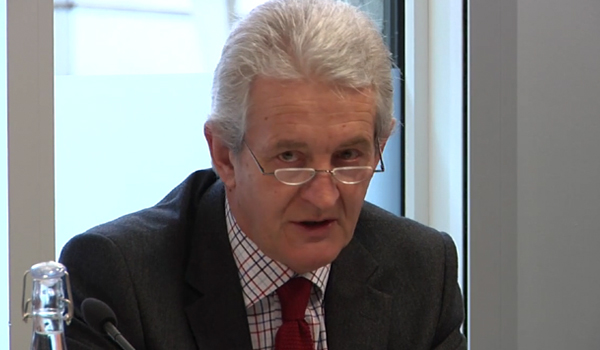MPS warned operational use of LFR could fall outside legal framework
The Government’s Biometrics Commissioner has warned the Metropolitan Police Service (MPS) that its planned operational use of live facial recognition (LFR) could fall outside the existing legal mandate governing the technology.
The decision to deploy LFR technology at various locations across the capital comes after the High Court ruled last September that the use of the technology by South Wales Police was lawful. That ruling followed a legal challenge mounted by Ed Bridges, supported by human rights organisation Liberty, who had argued that the use of LFR breached his right to privacy as well as data protection and equality laws.
However, Biometrics Commissioner Professor Paul Wiles, who oversees police use of new technology, cautioned the MPS that the case had related solely to how South Wales Police officers had used the system.
“It should be noted that the published legal mandate references the recent judgment of the High Court in Cardiff on the use of LFR by South Wales Police,” he said. “Although the court found South Wales’ use of LFR to be consistent with the requirements of the Human Rights Act and data protection legislation, that judgment was specific to the particular circumstances in which South Wales Police used their LFR system. The Metropolitan Police will need to pay attention to those circumstances to which the court drew attention.”
Professor Wiles added: “It should also be noted that the South Wales decision is now being appealed and that the new Government gave a manifesto commitment to provide a strict legal framework to govern the future police use of biometrics and artificial intelligence.”
The Information Commissioner’s Office (ICO) also urged caution, stating that while its own investigations had “found there was public support for police use of LFR… there needed to be improvements in how police authorised and deployed the technology if it was to retain public confidence and address privacy concerns”.
“We have received assurances from the MPS that it is considering the impact of this technology and is taking steps to reduce intrusion and comply with the requirements of data protection legislation,” the ICO said.
“We expect to receive further information from the MPS regarding this matter in forthcoming days. The MPS has committed to us that it will review each deployment, and the ICO will continue to observe and monitor the arrangements for, and effectiveness of, its use.”
The ICO added that LFR was “an important new technology with potentially significant privacy implications for UK citizens”.
It also reiterated its call for government to introduce a statutory and binding code of practice for LFR as a matter of priority.
“The code will ensure consistency in how police forces use this technology and to improve clarity and foreseeability in its use for the public and police officers alike,” said the ICO. “We believe it’s important for government to work with regulators, law enforcement, technology providers and communities to support the code.”
The MPS has already conducted trials of LFR in London. It has now decided to use the technology more widely and systematically, with cameras at undisclosed “specific locations” across the city.
The MPS says these deployments will take place “where intelligence suggests they are most likely to locate serious offenders” with the aim of combating serious crimes such as violent and armed offences and child sexual exploitation.
A tailored ‘watch list’ of wanted people will be supplied for each installation of the technology, with cameras watching over a ‘small, targeted area’.
The MPS said the use of LFR cameras will be clearly signposted and the technology will not be integrated with existing CCTV or ANPR (automatic numberplate recognition) systems.
Announcing the plans last week, MPS Assistant Commissioner Nick Ephgrave said: “Bearing down on serious violence is our number one priority and we believe we should explore the value of new technology to help us do that.
“Locating people who are wanted by the police is not new. Every day, police officers are briefed with images of suspects to look out for, resulting in positive identifications and arrests every day. Live facial recognition is about modernising this practice through technology to improve effectiveness and bring more offenders to justice.”
Human rights campaigners argue that facial recognition technology is “a shocking violation of privacy”.
Martha Spurrier, director of Liberty, said images captured by the LFR cameras were then “compared to images on secretive police watch lists, which can be of any of us, whether we’re suspected of crime or not”.
She added: “The images can be sourced from anywhere – including our social media accounts. Aside from its Orwellian nature, this tech is particularly bad news if you’re a woman or a person of colour.
“It’s been known to misidentify these groups, meaning you’re more likely to be stopped, questioned and searched by the police if you’re a woman or if you’re BAME (black and minority ethnic). And when the Met ‘trialled’ the tech, it often chose to use it in locations known to have high BAME or working-class populations, embedding discriminatory approaches to policing.
“Police use of facial recognition in public must be banned now.”
MPs have raised concerns about the technology. During a House of Commons debate on Monday, shadow home secretary Diane Abbott said: “To bring in technology which may be inaccurate and may mean the guilty may go unapprehended and the innocent wrongly identified would be a spectacular own goal.”




